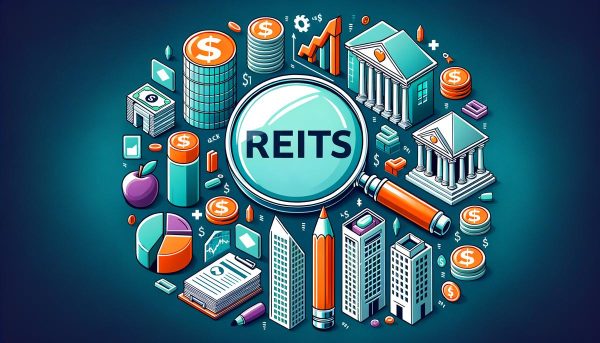Real Estate Passive Income Stream, generate long-term financial stability.
Looking to generate income in a way that requires minimal effort on your part? Real Estate Passive income may be the solution you’re seeking.
Real estate is a popular choice for creating passive income due to its potential for steady cash flow, property value appreciation, and tax benefits.
We will explore how you can create a passive income stream with real estate through rental properties, REITs, crowdfunding, and house hacking. We will also discuss the risks involved and provide tips for success in real estate investing.
What is Passive Income?
Passive income refers to earnings received on a regular basis with little to no effort required to maintain it. It is a stream of income that allows individuals to create financial stability and grow their assets over time, providing financial freedom and independence.
This form of income is seen as a crucial component in financial planning as it offers individuals the opportunity to diversify their revenue sources and reduce reliance on active income. By implementing passive income strategies such as investing in stocks, real estate rental properties, or creating digital products, individuals can establish a more secure financial future. It involves setting up systems or assets that continue to generate revenue without constant hands-on involvement, allowing for a more balanced and sustainable financial portfolio.
Why Real Estate is a Good Source of Passive Income?
Real estate is considered a prime vehicle for passive income due to its potential to generate steady cash flow, build equity over time, and provide a reliable source of rental income.
Investing in real estate offers the opportunity to benefit from property appreciation, adding another layer of financial growth to your investment portfolio. Unlike the volatile nature of stock markets, real estate investments tend to be more stable and less susceptible to sudden market fluctuations, making them a desirable option for those seeking long-term wealth accumulation. Rental income from real estate properties can serve as a consistent stream of revenue without the need for active involvement in day-to-day management, allowing investors to enjoy the benefits of passive income while their assets appreciate in value.
Steady Cash Flow
Investing in real estate can offer a steady cash flow through rental payments from tenants occupying the rental properties. This consistent stream of income contributes to the passive income portfolio.
Managing tenants is a crucial aspect of maintaining this income stream. Effective tenant management involves screening tenants, addressing maintenance issues promptly, and fostering positive landlord-tenant relationships. By ensuring that rental properties are well-maintained, landlords can attract and retain quality tenants, thus maximizing rental income. Properly pricing the rental units based on market rates and regularly reviewing rental agreements can further enhance the cash flow generated by rental properties.
Appreciation of Property Value
One of the key advantages of real estate is the potential for property value appreciation over time, leading to an increase in equity for the property owner. This appreciation can significantly enhance the overall value of the rental property.
As property values appreciate, the equity in the property grows, allowing the owner to leverage this increased equity for future investments or financial opportunities. Property appreciation plays a crucial role in building a real estate passive income stream through rental income. By investing in properties that have strong potential for appreciation, investors can secure a steady source of income over the long term, creating a sustainable revenue stream for financial stability and wealth accumulation.
Tax Benefits
Real estate investments offer various tax benefits to property owners, including deductions for rental property expenses, maintenance costs, and property taxes. These tax advantages can optimize the financial returns from real estate as a passive income source.
Owners of rental properties can deduct a wide range of expenses related to their investment, such as repairs, insurance, and property management fees, which can significantly reduce their taxable income. Property owners can also enjoy deductions for property taxes paid on their rental properties, further lowering their tax liability. By taking advantage of these tax benefits, investors can enhance their overall financial gains and cash flow by maximizing the return on their real estate investments.
How to Create a Passive Income Stream with Real Estate?
Creating a passive income stream with real estate involves strategic investments in rental properties, effective management of rental assets, and careful consideration of investment strategies and financing options.
To start the journey towards establishing a passive income through real estate, the first step is selecting the right rental property. Location is key; aim for areas with high demand and growth potential. Consider property types such as single-family homes, multi-family units, or vacation rentals based on your investment goals and budget.
Next, develop a solid investment strategy tailored to your risk tolerance and desired returns. Whether you opt for a buy-and-hold approach, house hacking, or short-term rentals, ensure your strategy aligns with your long-term financial objectives.
Rental Properties
Rental properties are a fundamental component of creating passive income through real estate. By leasing out properties to tenants under rental agreements, investors can generate rental income and manage the properties for long-term financial gains.
This type of real estate investment allows individuals to diversify their income streams and build wealth over time.
Effective rental agreements outline the terms and conditions for the tenant-landlord relationship, covering aspects such as rent amount, payment frequency, maintenance responsibilities, and lease duration.
Maximizing rental income involves setting competitive rental rates based on market trends, maintaining the property to attract quality tenants, and promptly addressing tenant concerns to ensure tenant retention.
Property management practices play a crucial role in ensuring the smooth operation of rental properties, including regular maintenance, timely repairs, and effective communication with tenants.
Real Estate Investment Trusts (REITs)
Real Estate Investment Trusts (REITs) provide an avenue for passive income investments in real estate without direct property ownership. Investing in REITs allows individuals to diversify their income streams and participate in a professionally managed rental portfolio.
This form of investment functions by allocating capital into a portfolio of real estate properties or real estate-related assets. REITs generate income through rental payments, property sales, and mortgage interest. By investing in REITs, individuals can benefit from real estate market exposure without assuming the responsibilities of property management. Diversification in REITs is achieved by owning shares in multiple properties across different sectors, such as residential, commercial, industrial, or healthcare. Such diversification helps spread risk and potentially enhances long-term returns for investors.
Crowdfunding Real Estate
Crowdfunding real estate platforms offer innovative passive income strategies by allowing investors to participate in real estate projects collectively. This approach enables individuals to benefit from rental property growth and generate passive income without direct property ownership.
Investors can diversify their portfolios by investing in different real estate projects through crowdfunding platforms, spreading the risk across multiple properties. By leveraging these platforms, individuals can access real estate opportunities that may have been out of reach due to high entry costs or lack of expertise in the market. Crowdfunding real estate provides a hassle-free way to earn passive income, as the platform takes care of property management, rent collection, and other operational aspects.
House Hacking
House hacking involves living in one unit of a multi-unit property while renting out the others to cover mortgage payments and generate rental income. This strategy combines personal residence with rental property investments, optimizing financial returns through property upgrades and market analysis.
By making strategic upgrades to the rental units, such as enhancing curb appeal, upgrading appliances, or improving amenities, investors can attract higher-paying tenants and increase property value. These improvements not only make the units more desirable but also allow landlords to command higher rental rates, ultimately leading to a higher return on investment.
Conducting thorough market analysis is essential in identifying profitable properties, understanding rental demand, and setting competitive rental prices to ensure a steady stream of passive income.
What are the Risks of Investing in Real Estate for Passive Income?
While real estate offers significant passive income potential, there are inherent risks associated with investing in property for passive income, including issues like tenant vacancies, market fluctuations, and the need for a robust investment strategy to mitigate these risks.
Tenant management can pose challenges for property owners, as it requires dealing with rent collection, maintenance requests, and potential disputes. Market uncertainties make it challenging to predict rental demand and property values accurately, affecting investment returns. Having a well-defined investment strategy is crucial to address these risks; it should include criteria for property selection, financial planning, and risk management strategies to navigate the unpredictable nature of the real estate market.
Vacancy and Tenant Issues
Vacancy and tenant issues pose significant risks in real estate investments for passive income. Vacant properties can lead to income loss, while tenant-related challenges require effective management, maintenance, and insurance coverage to safeguard the rental assets.
To mitigate these risks and ensure a steady flow of passive income, property owners must prioritize regular maintenance tasks to upkeep the property’s value and appeal to potential tenants. Adequate insurance coverage is crucial to protect against unforeseen damages or liabilities.
Implementing effective tenant management practices such as thorough screening processes, clear communication, and timely responses to concerns can help minimize potential issues and foster positive landlord-tenant relationships, ultimately contributing to a more stable rental income stream.
Market Fluctuations
Market fluctuations can significantly impact real estate investments for passive income, as changes in rental property market trends and economic conditions may influence the success of passive income strategies. Understanding and adapting to market dynamics is crucial for long-term success.
By monitoring fluctuating market conditions and staying informed about rental property trends, investors can make informed decisions to optimize their passive income streams. Implementing adaptive strategies such as adjusting rental rates based on market demand, diversifying property portfolios, or leveraging technology for property management can help investors weather economic variations. Being proactive in assessing market risks and opportunities can lead to resilience and continued growth in passive income despite external factors beyond one’s control.
High Initial Investment
Real estate investments for passive income often require a high initial investment to acquire properties, secure financing, and cover expenses related to rental property management. The substantial upfront costs can pose a barrier to entry for some investors.
This financial challenge can deter individuals from taking advantage of the benefits that real estate can offer in terms of generating passive income. There are several financing options available to help investors navigate these hurdles.
One common approach is obtaining a mortgage loan to fund the property purchase, spreading out the cost over time. Careful consideration of rental property expenses such as maintenance, utilities, and property taxes can aid in creating a more accurate budget to mitigate unforeseen financial strains.
In order to overcome the initial investment obstacle, property investors may also explore creative strategies like partnering with other investors, utilizing crowdfunding platforms, or pursuing properties with lower entry costs. By carefully planning, researching potential financing avenues, and aligning investment goals with realistic financial expectations, investors can work towards building a successful real estate portfolio for passive income generation.
Tips for Creating a Successful Passive Income Stream with Real Estate
Achieving a successful passive income stream with real estate requires strategic planning, wealth building initiatives, and a focus on sustainable rental property growth. By following key tips and guidelines, individuals can optimize their real estate investments for passive income generation.
- One valuable tip is to diversify your real estate portfolio to spread risk and potentially increase returns. Consider investing in different types of properties such as residential, commercial, or vacation rentals.
- Ensuring proper maintenance and upgrades to your rental properties can attract high-quality tenants and command higher rental rates, ultimately boosting your passive income stream. It’s also essential to stay informed about market trends, local regulations, and other factors that can impact your real estate investments.
- By staying proactive and continuously optimizing your portfolio, you can build a sustainable real estate passive income stream for long-term financial growth.
Research and Educate Yourself
Researching and educating yourself about real estate investment opportunities is crucial for setting financial goals and achieving passive income wealth through informed decision-making. By gaining knowledge and insights into the real estate market, investors can enhance their passive income strategies.
Staying informed about market trends and investment opportunities is key to making sound investment decisions within the real estate realm. Keeping a pulse on the latest developments in the industry can help investors identify emerging markets, potential hotspots, and areas of growth.
Engaging in continuous education through seminars, workshops, online courses, and networking events is also vital for honing one’s skills and staying ahead of the curve in this dynamic sector. By remaining proactive and well-informed, investors can position themselves for long-term success and sustainable real estate passive income streams.
Diversify Your Investments
Diversifying your investments beyond real estate helps spread risk, optimize financial returns, and build a robust financial portfolio for long-term growth and stability. By balancing real estate assets with other investment options, individuals can safeguard their passive income streams.
Venturing into various financial instruments such as stocks, bonds, mutual funds or cryptocurrency trading can offer greater flexibility and potential for higher returns. Creating a diverse income portfolio is essential to mitigate market fluctuations and unforeseen economic downturns. It allows investors to capitalize on different market cycles and hedge against uncertainties. By strategically allocating funds across different asset classes and sectors, one can enhance overall portfolio resilience and income generation potential.
Have a Solid Plan and Budget
Establishing a solid financial plan and budget is essential for creating a secure financial future through real estate investments. By setting clear financial goals, defining investment strategies, and adhering to a well-structured budget, individuals can ensure financial security and passive income success.
Considering factors like property management costs, potential maintenance expenses, and market fluctuations is crucial when building your financial strategy.
Diversifying your real estate portfolio, staying informed about market trends, and seeking professional guidance can help in maximizing returns and mitigating risks.
Reevaluating your financial plan regularly and adjusting it to align with your changing goals and circumstances is key to long-term success in real estate investing.
By prioritizing financial discipline and strategic decision-making, you can pave the way for a sustainable passive income stream.
Consider Hiring a Property Manager
Engaging a professional property manager can streamline rental property management, handle maintenance tasks efficiently, and contribute to property appreciation by ensuring optimal upkeep and tenant satisfaction. Outsourcing property management can alleviate investor responsibilities and enhance passive income returns.
Property managers bring a wealth of expertise in dealing with tenants, handling lease agreements, and enforcing rental policies. Their knowledge of local real estate market trends and regulations ensures that your property is managed in compliance with the law, reducing the risk of legal issues. Property managers conduct regular inspections, address tenant concerns promptly, and coordinate repairs and upgrades, which ultimately lead to higher tenant retention rates and increased property value over time.




